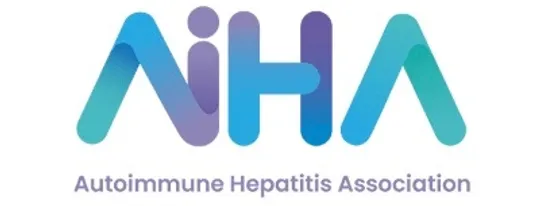Health Equity
The Autoimmune Hepatitis Association believes all autoimmune hepatitis (AIH) patients, regardless of their race or ethnicity, deserve access to high-quality education and support so they can become strong advocates for themselves. Everyone deserves the opportunities and resources they need to be healthy.
Our Statement.
The Autoimmune Hepatitis Association (AIHA) believes all autoimmune hepatitis (AIH) patients, regardless of their race or ethnicity, deserve access to high-quality education and support so they can become strong advocates for themselves. Everyone deserves the opportunities and resources they need to be healthy. We work to empower patients to become educated about their disease so they can successfully navigate the healthcare system, receive specialized care from liver disease experts, access our education and support programs, and ultimately live long, healthy lives.
The Need.
The United States has a long history of racial injustice that has led to widespread health inequity for patients of color. Health inequity is glaringly obvious in autoimmune hepatitis. The few studies that have been conducted in Black patients show that they tend to be diagnosed with more severe liver damage, don’t respond as well to available treatments, and are more likely to need liver transplants than White patients. Hispanic patients are even less well studied, and published papers show they are more likely to have cirrhosis and need hospitalization for AIH.
The AIHA is committed to learning more about health inequity, conducting better outreach to all AIH patients of color, and advancing research in diverse populations.
The Facts.
Very few scientific studies of AIH have been published that include minority races. In fact, there are only a handful of published reports concerning Black AIH patients, and these include disease outcomes of less than 150 patients worldwide.

These limited data have suggested Black AIH patients are more likely to be diagnosed at a younger age, have cirrhosis at diagnosis, and have a higher risk of needing a liver transplant and dying related to AIH compared to White patients.
Very few AIH studies of Hispanic patients exist, and the ones that do include few patients who are often likely to have cirrhosis at diagnosis and need hospitalization for AIH.
Our Work.
In 2021, the AIHA convened a group of committed patients, doctors, and researchers to form its first Diversity, Equity, and Inclusion Committee to begin thinking more intentionally about health inequity in AIH. The committee plans to begin educating AIHA members about this important topic, and plans a survey and focus group to better engage and learn from our members of color. We look forward to sharing more as our work progresses.
The AIHA Diversity, Equity, and Inclusion Committee.

Danielle Cleary
Chair
A licensed social woker and community representative to the AIHA Medical Advisory Board

Portia Exum
Member
Manager and Software Development Engineer at SAS, a business analytics software and services company

Farhana Faruk
Member
Medical student

John Guardiola, MD
Member
Hepatology fellow at Indiana University School of Medicine

Lauren Nephew, MD
Member
Hepatologist at Indiana University School of Medicine

Michele Tana, MD
Member
Hepatologist at University of California, San Francisco

Kate Williams
Member
Risk Assurance Manager at Maxwell Locke & Ritter, an accounting firm in Austin

Veronica Williams
Member
Director of the Academic Advisement Center at Augusta University

Craig Lammert
AIHA Executive Director
Hepatologist at Indiana University School of Medicine

Erin Anderson
AIHA Staff
Director of Programs and Advancement
The Patient Experience.
Veronica Williams
Veronica shares her 10-year journey to being diagnosed with AIH and how she’s now an advocate for patients with this rare disease.
Portia Exum
Portia explains how applying for life insurance led her down the road to being diagnosed with AIH. She also details the symtoms and medications side effects she experiences and how she handles them.
Zainab Salah
Like many other AIH patients, Zainab experienced weight gain due to the medication she was prescribed to treat her condition. She shares how connecting with the AIHA helped her become a better advocate for herself.
